The seafood aisle is confusing enough, but we are now finding that many claims of sustainable seafood are actually more fantasy than reality. A report from Seachoice.org has found widespread fake sustainable seafood labeling in tuna & salmon. So what are you supposed to do when you want to purchase seafood that is better for you and the Planet? You’ve trusted Mamavation to bring you topics like best non-toxic cookware without PFAS & nanoparticles, best & worst teas, and best & worst wines, now join us to break down the reality of sustainable seafood labeling, or lack thereof, in tuna & salmon and show you what brands we recommend.
Disclosure: This post contains affiliate links.

Table of Contents
Seachoice.org Reports Major Labeling Problems in Sustainable Seafood
In 2021, Seachoice.org came out with their report “Certification, Verification or Fabrication: An Investigation of Seafood Environmental Claims in Canadian Retailers” which took a look at all the environmental seafood claims in Canada and whether they were backed by evidence.
When it comes to claims made about sustainable fishing, there are some problematic findings that don’t elicit trust in the system:
- Found 234 environmental claims in Canadian markets across 181 seafood products
- The average product contained 1.3 claims, with a maximum of 3 claims
- Claims were either self-declared, endorsements, or certifications
- Self-declared claims were most popular accounting for 102 claims and 44%
- Endorsements were the 2nd most popular accounting for 77 claims and 33%
- Certifications were the least popular accounting for 55 claims and 23%
Overwhelmingly, the report found that most of the claims were self-reported. When drilling further down to see if those self-reported claims were backed by evidence, they found that 41% of those brands provided no evidence for their claims.
- 60% of self-declared claims (61 out of 102) provided evidence of their accuracy
- Pacific salmon was the most popular with self-declared environmental claims, however, 8 claims had no evidence
In terms of traceability, 14 traceability clams were tested and over half (8 out of 14) were found to be “untraceable” meaning they had no idea where the seafood really originated from. Specifically, Clover Leaf and Ocean’s had websites that were designed to foster traceability but didn’t work.
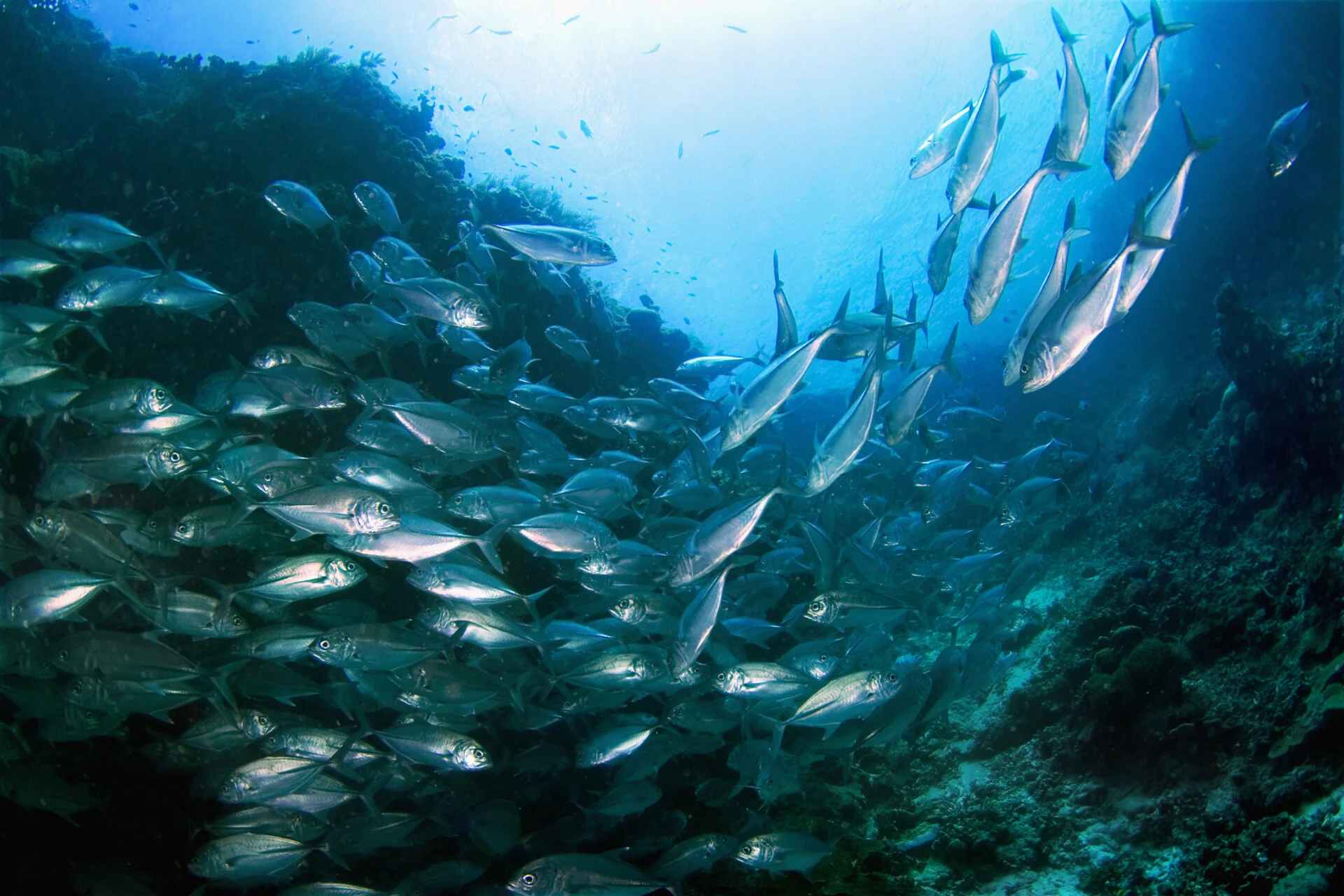
Dolphin-Safe Tuna Labeling Misleads Public to Believe Fishing Practices are Sustainable
When you pick up a can of “dolphin-safe” tuna, you may have felt like your purchase protects other animals in the sea, but that’s not likely the case. In fact, this report found that some certifications focusing on a single species, like dolphins, completely ignored other species, some endangered, that may be harmed by the same fishing practices. Examples of such animals are:
- Sea turtles
- Sharks
- Sea birds
In terms of sustainable fishing, a “dolphin-safe” claim can lead you into a false sense of security about that brand’s practices. Sadly, we love dolphins so much that we stopped worrying about other species, like sharks, who are also a really important part of the Ocean and its ecosystem. If that’s the only certification they have, proceed with caution. But just note that Bumblebee, Chicken of the Sea & Starkist were sued for false advertisement.

Most Tuna Is Unsafe for Pregnant Women & Small Children Because of Mercury Pollution
Tuna is one the most dangerous fishes in the sea in terms of how much mercury they are delivering to consumers. In fact, tuna contains more mercury than most other seafood you consume according to the Federal Drug Administration based on testing they did from 1990 to 2010.
Yet even though this was done decades ago, the amounts of mercury inside tuna are expected to get worse, not better, based on where the contamination is coming from– air pollution. When fossil fuels are burned, mercury pollution settles in streams and then runs into the ocean where it accumulates in the fat of fish. This is such a problem that it’s estimated up to 10 percent of American women of childbearing age carry enough mercury in their bloodstreams to put their developing children at increased risk for developmental problems.
FDA Recommendations for Pregnant Women (Choose One Not All)
- 12 ounces (340 grams) of canned light tuna or other low mercury fish, such as anchovies, cod, tilapia, or trout, OR
- 4 ounces (112 grams) of yellowfin, white, albacore tuna, or other medium mercury fish, such as bluefish, halibut, mahi-mahi, tilefish, or snapper
Exposure to mercury can result in brain cell death, impaired fine motor skills, lowering of concentration and focus. Mercury exposure is also linked to anxiety and depression. And the more you have in your body the greater your risk of heart disease.
Tuna by Mercury Levels in Parts Per Billion (PPB)
- TUNA (FRESH/FROZEN, BIGEYE) 689 ppb
- TUNA (FRESH/FROZEN, Species Unknown) 410 ppb
- TUNA (FRESH/FROZEN, ALL) 386 ppb
- TUNA (FRESH/FROZEN, ALBACORE) 358 ppb
- TUNA (FRESH/FROZEN, YELLOWFIN) 354 ppb
- TUNA (CANNED, ALBACORE) 350 ppb
- TUNA (FRESH/FROZEN, SKIPJACK) 144 ppb
- TUNA (CANNED, LIGHT) 126 ppb
Other Seafood by Mercury Levels in Parts Per Billion (PPB)
- SALMON (FRESH/FROZEN) 22 ppb
- CRAWFISH 33 ppb
- CRAB 65 ppb
- TROUT (FRESHWATER) 71 ppb
- LOBSTER (Spiny) 93 ppb
- LOBSTER (NORTHERN / AMERICAN) 107 ppb
- COD 111 ppb
- SNAPPER 166 ppb
- MAHI MAHI 178 ppb
- HALIBUT 241 ppb
- BASS CHILEAN 354 ppb
- ORANGE ROUGHY 571 ppb
- SHARK 979 ppb
- SWORDFISH 995 ppb
Based on these numbers, Mamavation suggests only eating light tuna, and avoiding all the rest. The good news is there is a brand of tuna that we are recommending later in this investigation that tests every single fish for mercury.
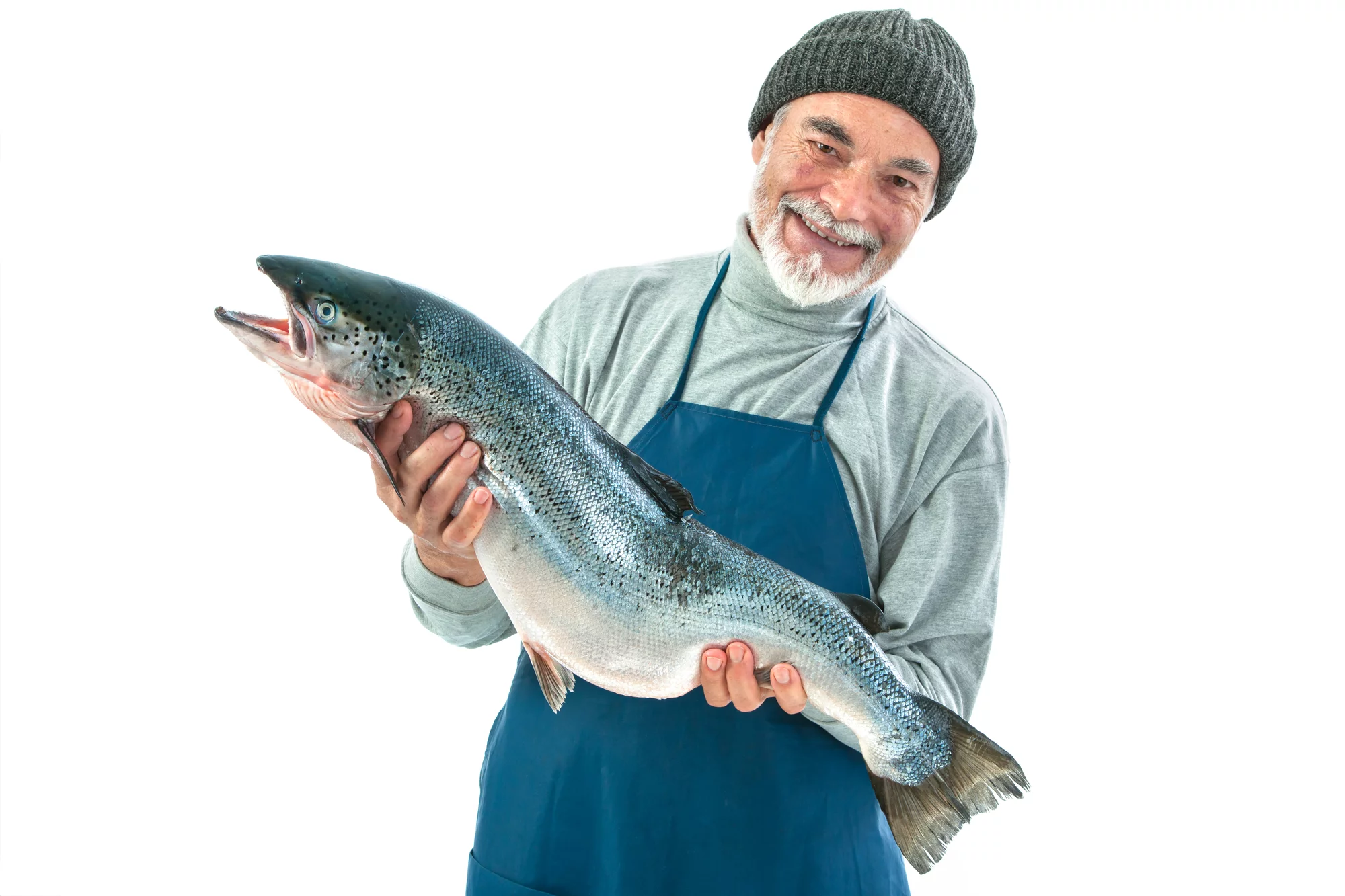
SeaChange Brings Big Fishing To The Table, However, Not In The Way You Think
We noticed some of the largest tuna brands were using the organization SeaChange to source their tuna. When we dug into what SeaChange was and whether their fisheries were MSC certified, it wasn’t clear. In fact, we found some interesting language that was less than desirable and very easy for the consumer to confuse with MSC certification.
SeaChange is an organization that is attempting to lead the world to sustainable fishing, however, it’s more of a nobel concept as of now. Their sustainably-sourced tuna is defined as “tuna from fisheries that are certified according to standards by the MSC or are in FIPs that move the fishery towards MSC certification.”
In other words, they are not quite there yet. If you are reading this post looking for tuna that is already there, move along.

Largest Farmed Atlantic Salmon Company Sued for Deceiving Consumers Raising Doubt on Industry–Ducktrap / Mowi
On July 30th 2020, a lawsuit was filed by the Organic Consumers Association against Mowi® ASA, the largest farmed Atlantic salmon company in the world. Mowi owns brands Ducktrap River® Maine, Donegal Silver®, Admiral’s, Pieters, Laschinger, Kritsen, Harbour Salmon Company, Rebel Fish, Sterling Salmon, Supreme Salmon, Olavs, & Northern Harvest Seafarms.
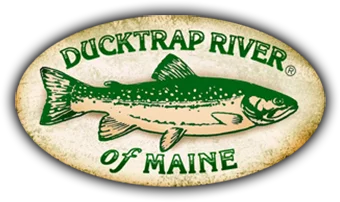
In this lawsuit, they list several misrepresentations by Mowi® in their marketing practices of products under the smoked Atlantic salmon brand Ducktrap. These are important because may I remind you, this is the largest producer of farmed Atlantic Salmon in the world. Here’s what is alleged in the lawsuit:
- GREEN WASHING: Ducktrap uses terms like “sustainably sourced” “farmed sustainably” and “eco-friendly” suggesting to consumers that the products are made from salmon sourced in accordance with higher environmental and animal welfare standards.
- DRUG USE: Ducktrap uses terms like “all-natural” “100% natural” and “made from salmon that are not treated with artificial chemicals” which leads you to believe they aren’t using synthetic pesticides, antibiotics, bleach, formalin and sedatives (not joking) on the fish, which the lawsuit alleges they are.
- WRONG LOCATION: Ducktrap uses terms like “from Maine” “Maine seafood” and “from the coast of Maine” leading consumers to believe their farmed fish are from Maine, which the lawsuit alleges is false and misleading because they are from Chile, Scotland, Iceland, & Norway, not Maine.
It’s hard to believe that the largest fish conglomerate in the world would actively deceive customers but these allegations lead us to look at the industry as a whole. The farmed Atlantic Salmon industry has some problematic practices.
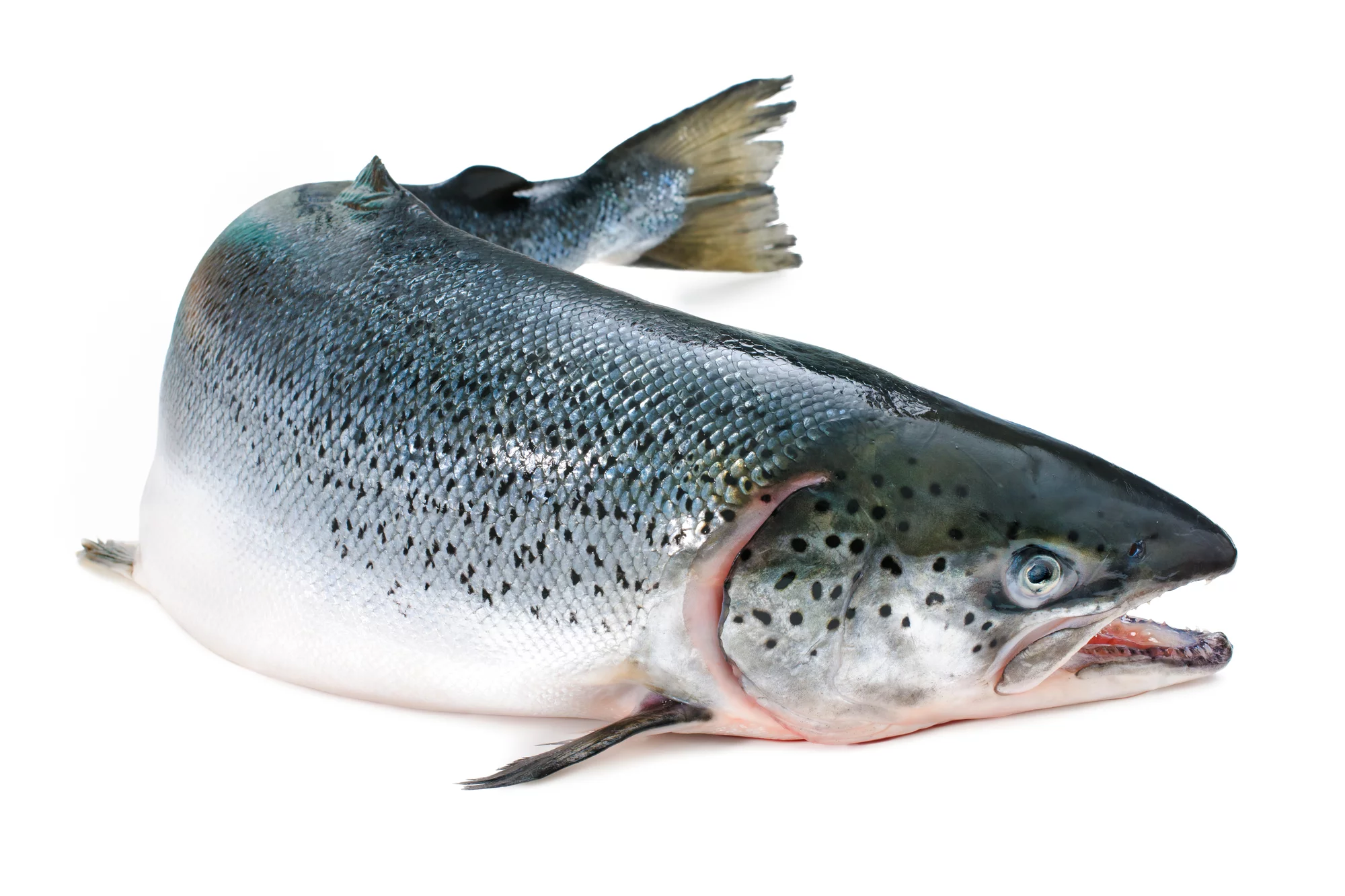
Use of Drugs & Other Chemicals to Treat Farmed Salmon
When unsanitary conditions are present in farmed Atlantic Salmon, companies have a wide array of anti-microbial drugs that can pose risks to human health and the environment to use.
According to Mowi®’s own audit documents, their salmon is treated with antibiotics like florfenicol, oxytetracycline, and sulfamerazine. The salmon are also administered sedative (yes, sedatives!) tricaine mesylate, and semi-synthetic insecticide, & emamectin benzoate. They also use chemical disinfectants, including formaldehyde-based formalin (a known carcinogen) and bleach.
Why is this all happening? Sea lice and other diseases that become overwhelming when large aggressive Atlantic Salmon are kept in small pens. Diseases such as this have the potential to take hold:
- Sea lice are parasites that attach themselves to the Atlantic salmon and feed on their flesh, scales, and tissues. This eventually leads to the tearing of flesh and open wounds with tissues exposed, causing pain and creating an entrance for diseases. It can be as high as 29.5 adult female lice per fish.
- Cardiomyopathy syndrome is a disease impacting the heart muscle of salmon, leaving them weak and fragile.
- Amoebic Gill Disease is a disease of parasites taking hold and will eventually cause death via asphyxiation.
- Infectious Salmon Anaemia is a disease without a cure and any infected fish must be immediately slaughtered to protect the rest of the school. In 2016, over 100,000 salmon died from Amoebic Gill Disease over a period of 10 weeks.
- Improper Development from Breeding with Wild Salmon from Escapes. When salmon escape, like how 300,000 salmon escaped in 2017. These creatures are poorly adapted to life in the wild and suffer tremendously. Escaped farmed salmon also interbreed with wild salmon creating offspring that have reduced attributes built into them like poorer fitness capability.
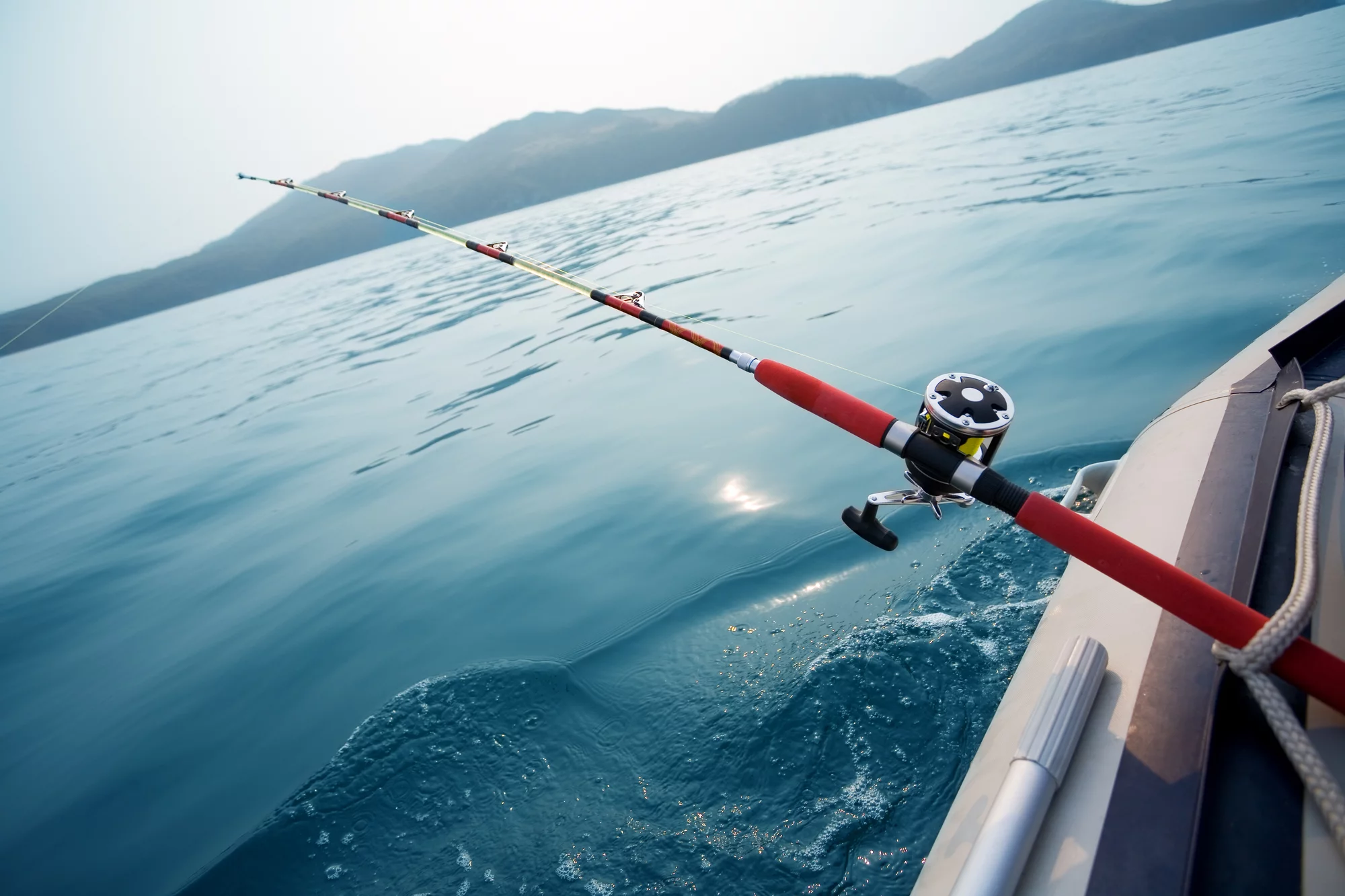
Antibiotics in Atlantic Salmon Contribute to Antibiotic-Resistant Bacteria in Humans
When it comes to farmed salmon, the most dangerous part of their fishing practices are connected with their over-use of antibiotics.
In 2015, it was discovered that the antibiotic-resistant bacteria developed through the over-use of antibiotics in fish farming practices can be passed down to humans in their gut microbiome leaving them more susceptible to antibiotic-resistant bacteria.
According to The Center for Disease Control (CDC) “each year in the U.S., at least 2.8 million people get an antibiotic-resistant infection, and more than 35,000 people die.” In fact, drug resistance is one of their top concerns. Why? Well, if we lose the ability to treat people with antibiotics, we cease to have modern medicine.
In addition to antibiotic-resistant bacteria, people with allergies can react to seafood using those antibiotics to treat disease.
The good news is the Canadian use of antibiotics in Atlantic Salmon has gone down. Yet in 2018, it was discovered that the use of antibiotics in Chili has gone up.
The regulatory framework in Norway and Canada has improved in terms of testing the flesh to ensure it’s below “safe limits” when fish are harvested.
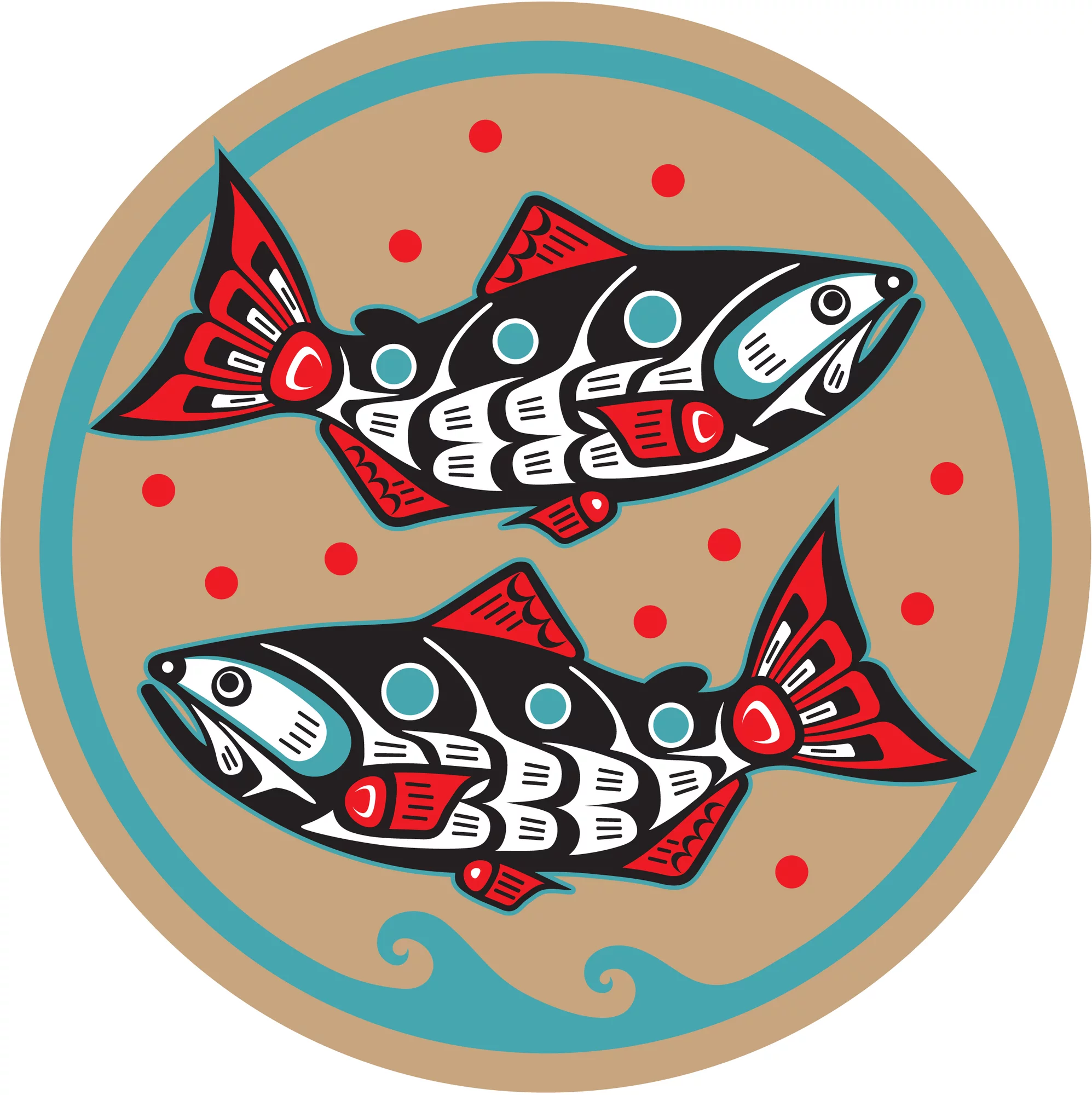
Types of Tuna & Salmon Certifications That Make Sense
There are many seafood certifications out there, but when it comes to Tuna & Salmon, our favorites were Marine Stewardship Council (MSC) Certified Sustainable® & Aquaculture Stewardship Council.
- Aquaculture Stewardship Council (ASC) is an independent, international non-profit organization that manages a certification and labeling program for responsible farmed fish and shellfish operations. You’ll only see this with farmed salmon.
- Marine Stewardship Council (MSC) Certified Sustainable®: is an international non-profit organization that certifies wild seafood, and recognizes and rewards efforts to protect oceans and safeguard seafood supplies for the future. The MSC Blue Label is only applied to wild fish or seafood from fisheries certified to the MSC standard, a scientific measure of sustainable fishing.
Other certifications you will find out there in the seafood world are numerous and you can look at more of them here:
- Seafood Watch from the Monterey Bay Aquarium provides recommendations on seafood that’s fished or farmed in ways that have less impact on the environment. While not a certification, signs may be placed in the store or restaurant so if you eat out, you’ll know where to go.
- Global Seafood Sustainability Initiative (GSSI) is an international public-private partnership on seafood sustainability with 90+ stakeholders industry-wide, including companies, NGOs, governments and international organizations.
- Best Aquaculture Practices® (BAP) is an international certification program for farmed fish and shellfish, and it is based on industry favorable standards. BAP standards developed by the Global Aquaculture Alliance.
- Fair Trade Certified® Seafood is a new certification that assesses fair wages, safe working conditions, and environmental protection for the fishermen and farmers. It may include additional benefits such as providing education, healthcare, and clean water for the local community where the seafood is from.
- Sustainable Fishery Advocates operates the FishWise program for labeling seafood by retailers.
- Friends of the Sea® is an independent organization that developed certification schemes for products from sustainable fisheries and aquaculture. The certification schemes also include standards for the reduction of carbon footprint and social accountability.
- NOAA Fisheries manages the United States fisheries within 200 miles from our coastlines under the Magnuson-Stevens Fishery Conservation and Management Act (MSA).
- NOAA’s FishWatch.gov website has good information and resources for consumers to learn about different species – both wild and farmed.
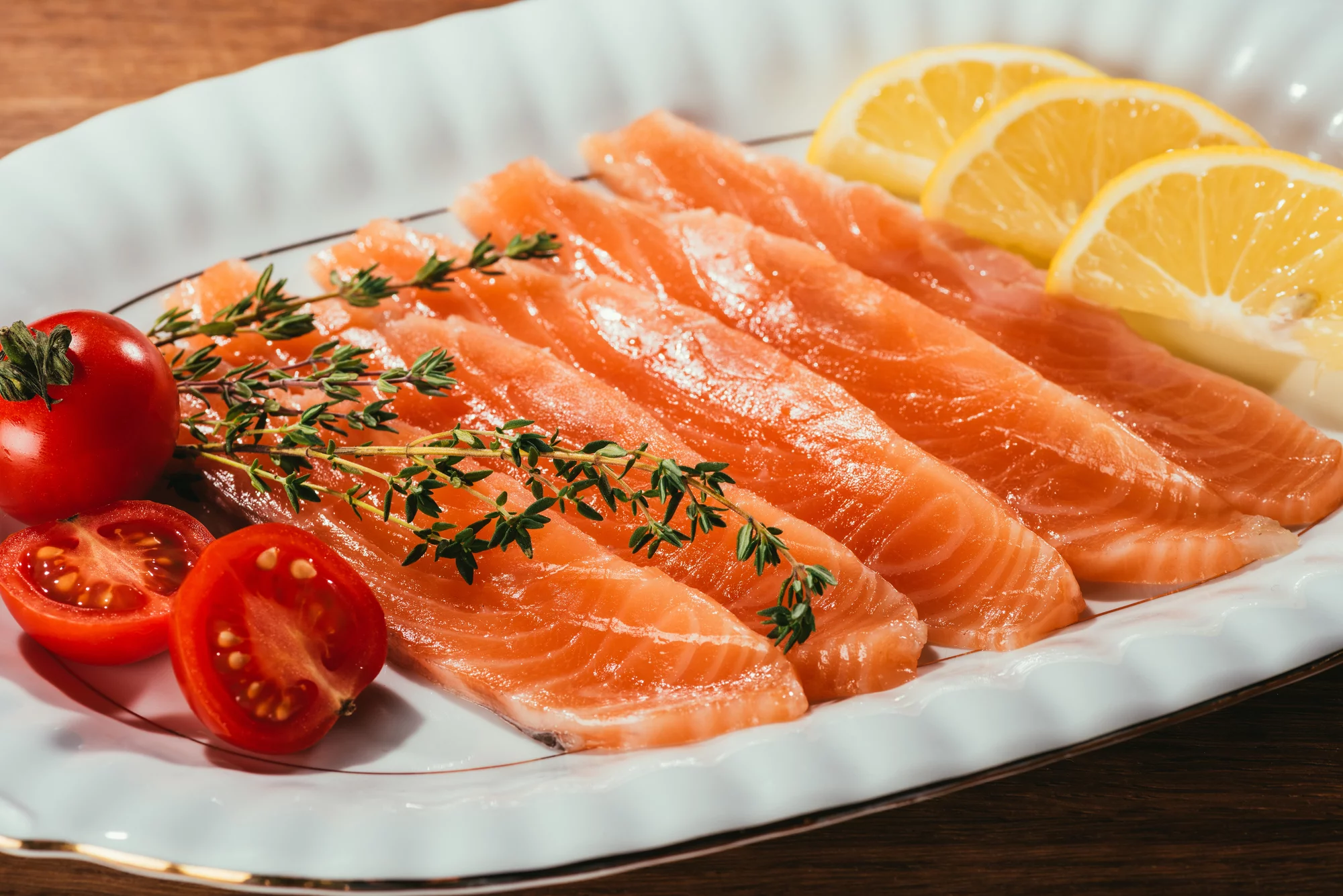
Mamavation Investigates Tuna & Salmon Brands in the United States
Understanding the options in Canada are not always clear in terms of sustainable fisheries, our options in the United States aren’t very much clearer either.
After we studied this problem with Canadian brands, we looked at what American tuna brands were doing and added that to what we already knew about salmon brands from our earlier investigation on salmon.
By compiling information from both Seachoice.org and our own work, we were able to come up with a list of brands for you to either avoid or purchase from. However, if you want the full list, scroll down to the bottom.

Mamavation Recommends–VitaChoice For Salmon & All Other Deliveries of Frozen Wild-Caught Fish
If you would like to have the highest quality seafood delivered directly to your home, you should check out VitalChoice.
If you are looking for the highest quality of seafood, VitalChoice is a simple choice to make without having to leave the house in terms of wild-caught seafood.
Superior Wild-Caught Fish Delivered to You Frozen
- Wild Salmon
- Wild Pacific Tuna
- Wild Alaskan Halibut
- Wild Alaskan Cod
- Chilean Sea Bass
- Wild Mahi Mahi
- Wild Pacific Lingcod
- Wild Alaskan Sablefish
- Wild Atlantic Haddock
- Wild Sea Scallops
- Mussels, Clams, & Oysters
Salmon & Anchovies in Pouches (Instead of Cans)
Mamavation Recommends–Safe Catch Tuna
When it comes to getting tuna, Mamavation recommends purchasing from Safe Catch. We love this brand because they test every fish for levels of mercury and don’t include any that don’t pass inspection. That means only 1 out of 4 tuna fish make it into Safe Catch.
- Safe Catch Elite Wild Tuna in Pouches (lowest mercury guarantee! They test every fish.)
- Safe Catch Ahi Wild Yellowfish Tuna in Pouches (lowest mercury guarantee! They test every fish.)
- Safe Catch Elite Cajun & Wild Tuna in Pouches (lowest mercury guarantee! They test every fish.)
- Safe Catch Tuna–Try them all! (lowest mercury guarantee! They test every fish!)
This brand is not MSC Certified, but we felt that mercury in your tuna was important enough, that selecting a brand that removes this public health problem a priority. So this brand does not have MSC certification, we checked, however, this brand was ranked Green “Best Choice” for sustainability by the Monterey Bay Aquarium Seafood Watch program so they do use good fishing practices.

Mamavation’s Investigation on Salmon & Tuna Brands
Mamavation combined the salmon (frozen, canned & prepared) investigation from earlier this year and combined it with the most popular American tuna brands & the brands that were vetted in this report.
We ended up looking at known trends in fishing practices in certain areas of the world and overlapped that with where the seafood was coming from with each brand. Brands that had less information available to consumers got a lower rating. Brands were also marked down for including less than desirable ingredients, canning their product, misrepresenting any factual claims about the product, not responding to consumer inquiries, & not containing any 3rd party certifications.
Not Our Favorite Salmon & Tuna Brands
These brands of Salmon were either from areas that had very problematic antibiotic use, PCB contamination or had fishing practices that put the ecosystem in danger. Tuna brands mostly used declarations or endorsements instead of certifications and were canned. This list also contains products that have added less than desirable ingredients. Brands were also marked down for not responding to any inquiries. Tuna brands that were not 100% transparent with how many fisheries were MSC certified were also stuck in this category. Brands relying on SeaChange were not clear about how many fisheries were actually MSC certified as opposed to being “engaged in Fishery Improvement Projects (FIPs) to move them towards MSC certification.” For all we know, uncertified brands are 99% of the ones used.
- Acme Smoked Fish: Blue Hill Bay Smoked Salmon
- Acme Smoked Fish: Great American Smoked Fish
- Bumble Bee® Pink Salmon–canned
- Bumble Bee® Tuna–canned or pouch
- C.Wirthy & Co.™ Blackened Salmon
- Cedar Bay™ Grilling Co. Planked Atlantic Salmon, Applewood with Orange & Ginger
- Chicken of the Sea Tuna in cans or pouches (fine print language in sustainability allowed up to 99% of their fisheries to be “engaged in Fishery Improvement Projects (FIPs) to move them towards MSC certification” but not actually MSC certified which was an odd way to put it.)
- Compliments Canned Tuna
- Costco Taste of Scotland Farmed Smoked Salmon
- Crown Prince Natural® Alaskan Pink Salmon
- Crown Prince Natural® Pink Salmon (canned)
- Ducktrap River® Maine All Natural Smoked Atlantic Salmon (Lawsuit)
- Echo Falls Chum Smoked Salmon
- Echo Farms Cold Smoked Salmon
- Freshe Tuna varieties in a can
- Genova Premium Tuna in cans or pouches (fine print language in sustainability allowed up to 99% of their fisheries to be “engaged in Fishery Improvement Projects (FIPs) to move them towards MSC certification” but not actually MSC certified which was an odd way to put it.)
- Harry & David® Northwestern Smoked Salmon
- Harry & David® Wild Alaskan Smoked Salmon
- Kirkland Signature Solid White Albacore Tuna in a can
- Morey’s® Fish Creations Steakhouse Atlantic Wild Salmon
- Nathan’s Classic Smoked Nova Salmon
- Ocean Beauty: Lascco (Los Angeles Smoking & Curing Company) Smoked Salmon
- Polar All Natural Chunk Light Tuna in a Can
- Portifino Tuna in Extra Olive Oil canned or pouch
- Solex® Catsmo® Smoked Salmon Collection: 4 types: Gold Label Smoked Salmon, Irish Smoked Salmon Scottish Smoked Salmon
- St. James Smokehouse® Scott Reserve Scottish Smoked Salmon
- Sunkist Tuna (Only 3.9% of Sunkist fisheries are MSC Certified Fisheries)
- Tonnino Light Tuna Ventresca In Olive Oil canned
- True North Seafood Co.®–Martha Stewart’s Line
- Vita Classic Nova Salmon
Better Tuna & Salmon Brands
This category represents brands that were improved but not quite the best. They included salmon areas that had “better” fishing practices, prior PCB contamination, or antibiotic use. This category also contained a smaller amount of additives & preservatives. Brands that were on the fence but didn’t respond to us went into this category as well. Based on the potential for bisphenol exposure, we also put canned brands in here using wild-caught salmon. We also included canned tuna brands in here that were MSC certified.
- 365 by Whole Foods Wild Skipjack Tuna in a can (MSC Certified)
- Acme Smoked Fish: Blue Hill Bay Smoked Salmon Poke Bowl
- American Tuna Pole Caught White Albacore in a can (MSC Certified)
- Blue Harbor® Wild Albacore Tuna in a Can (MSC Certified)
- Blue Harbor® Wild Pink Salmon in a Can (MSC Certified)
- Browne Trading Company: Classic Smoked Salmon
- Chicken of the Sea® Pink Salmon Skinless and Boneless (pouch)
- Clover Leaf Canned Pink Salmon Wild Pacific (Not all products, look for MSC Certified logo on can)
- Demings® Wild Alaskan Red Sockeye Salmon
- Demings® Wild Caught Alaskan Pink Salmon
- Ducktrap River® Maine Organic Smoked Atlantic Salmon
- Encore Seafoods Stuffed Alaskan Salmon
- Gold Seal Canned Wild Pacific Red Salmon (MSC Certified)
- Gourmet Canadiana: Cheena Wild Sockeye Smoked Salmon Retort
- High Liner Alaska Pollock Buffalo Wild Wings
- Honey Smoked Fish Co.®
- Jet Set Sam Premium Wild Smoked Sockeye Salmon Lox
- Kroger® Wild Caught Boneless & Skinless Pink Salmon Fillets
- Kroeger® Private Selection Wild Alaskan Sockeye Salmon
- Latitude™ 45 Cold Smoked Atantic Salmon
- Morey’s Fish Creations Atlantic Wild Salmon Steakhouse
- New York’s Delicacy Salmon Nova
- Ocean’s Canned Pole & Line Flaked Light Tuna in Water (Not all products are MSC certified so look for logo on can)
- Ocean Naturals GLASS JARS with Albacore White Tuna Flakes in Olive Oil & Jalapenos (MSC Certified)
- Ocean Naturals Albacore White Tuna in a can (MSC Certified)
- Open Nature™ Wild Caught Sockeye Salmon
- Petrossian Smoked Salmon
- Pike Place Fish Market Wild Fish King Smoked Salmon Fillet
- Pole and Line Caught (brand by Whole Foods) in a can (MSC Certified, & likely lower in heavy metals because they concentrate on younger fish)
- President’s Choice Canned Sustainably Sourced Salmon (MSC Certified)
- President’s Choice Canned Flaked White Tuna in Water (MSC Certified)
- Raincoast Trading Canned SkipJack Tuna Chunk in Water with Sea Salt (Not all products MSC Certified, look for logo on can)
- Ruby Bay® Organic Smoked Salmon
- Russ & Daughters® Irish Organic Smoked Salmon
- Sea Cuisine®: Pan Seared Alaskan Salmon
- Seabear Smokehouse® Traditional Wild Salmon
- Sustainable Seas Chunk Light Tuna canned
- Target® Simply Balanced™ Alaskan Sockeye Salmon Filets
- Trans-Ocean® Products Smoked Salmon
- waterfront BISTRO® Salmon Fillets Wild Alaskan Pink Boneless
- Wild Planet® Canned Sockeye Salmon
- Wild Planet® Canned Pink Salmon
- Wild Planet® Canned Albacore Tuna
- Wild Selections Canned Tuna, Solid in Water (Not ALL products, look for MSC certified logo on can)
Best Tuna & Salmon Brands
This category contains tuna & wild salmon caught in areas practicing sustainable wild & farmed fishing practices. This category also contains farmed fish from areas known to have better farming practices or seafood companies with ASC or MSC certification. It was not possible to ascertain the contents of fish feed for all Atlantic Salmon or Tuna brands, but certification provides us overall sustainability issues covered. Mamavation prefers you do not eat fatty fish out of cans often because of contamination of bisphenols, so we have highlighted pouches for you to find easily.
- ALDI Frozen & Prepared Farmed Atlantic Salmon
- Alaska Seafood Smoked Salmon & Seafood: Wild Caught King Salmon
- Alaska Seafood Smoked Salmon & Seafood: Wild Caught Sockeye Salmon
- Alaska Seafood Smoked Salmon and Seafood: Smoked Salmon Candy
- Aqua Star® Pacific Salmon Filets
- Blue Circle Foods Norwegian Peppered Roasted Smoked Filet of Atlantic Salmon (farmed, Nordland, Skjerstad Fjord, take 5% off by using LEAH5 at checkout)
- Blue Circle Foods Norwegian Smoked Salmon (farmed, Nordland, Skjerstad Fjord, take 5% off by using LEAH5 at checkout)
- Blue Circle Foods Frozen Norwegian Salmon Happy Fish (farmed, Nordland, Skjerstad Fjord, take 5% off by using LEAH5 at checkout)
- Blue Harbor Wild Albacore Tuna in a Pouch (MSC Certified) (unknown heavy metal contamination)
- Cedar Plank Foods: Wild Salmon
- Changing Seas Atlantic Smoked Salmon (farmed)
- Copper River Seafoods: Salmon
- Copper River Seafoods: Wild Alaskan Sockeye Smoked Salmon
- Costco® Brand: Northwest Fish Wild Alaskan Salmon
- Epic® Provisions: Maple Smoked Salmon Jerky
- Fairhaven Bay Seafoods: Filet Smoked Salmon
- Fairhaven Bay Seafoods: Wild Smoked Sockeye Salmon
- Foppen Norwegian Long Slived Smoked Salmon
- Gorton’s® Natural Classic Grilled Salmon
- HelloFresh™ Delivery Service–Atlantic Salmon (farmed)
- HemisFares™ Beech Wood Cold Smoked Salmon
- IKEA® Frozen Farmed Salmon Filets
- IKEA® Smoked Farmed Salmon
- Portlock® Wild Nova Smoked Salmon
- President’s Choice Frozen Salmon (Look for MSC Certification label, not all President’s Choice products have certification)
- Regal™ Beech Wood Smoked Salmon
- Regal™ Dill Cured Smoked Salmon
- Safe Catch Elite Wild Tuna in Pouches (lowest mercury guarantee! They test every fish.)
- Safe Catch Ahi Wild Yellowfish Tuna in Pouches (lowest mercury guarantee! They test every fish.)
- Safe Catch Elite Cajun & Wild Tuna in Pouches (lowest mercury guarantee! They test every fish.)
- Safe Catch Tuna–Try them all! (lowest mercury guarantee! They test every fish!)
- Safe Catch Wild Alaska Pink Salmon Pouches (lowest mercury guarantee, however salmon doesn’t typically have mercury, it’s just tuna)
- SeaQuest Frozen Sustainably Sourced Wild Pink Salmon Fillets
- Vital Choice® Seafood Company: Wild Sockeye Salmon
- Wild Selections® Alaskan Smoked Salmon
- Whole Catch Cold Smoked Sockeye Salmon
- Whole Foods® 360 Frozen Farmed Atlantic Salmon (Nordland, Skjerstad Fjord)
- Whole Foods® 360 Frozen Wild-Caught Sockeye Salmon Fillets

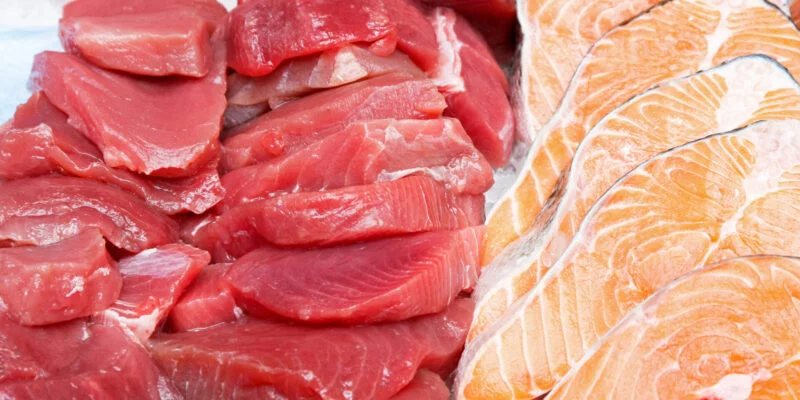



 VICTORY! Mamavation Tests Orgain Vegan Protein Powder Again & Finds No Detectable Glyphosate!
VICTORY! Mamavation Tests Orgain Vegan Protein Powder Again & Finds No Detectable Glyphosate!
Osm
I believe that like everything else, it’s a political and social game, for example the big issue, feminism, is a global problem that no one can solve.
Not long ago I came across a blog https://studydriver.com/feminism/, here they talk about the primary problems of humanity, I, I think it’s good to know how things work nowadays.
So, in my opinion such kind of postings are meaningless, it’s just to fill your head.
I don’t see Tovala meal delivery….
I don’t see Star Kist tuna on your lists..?
I was wondering the same.